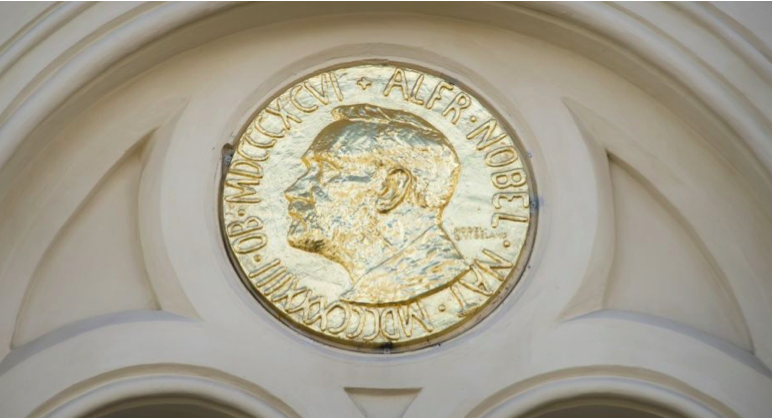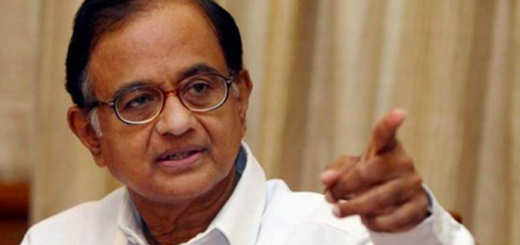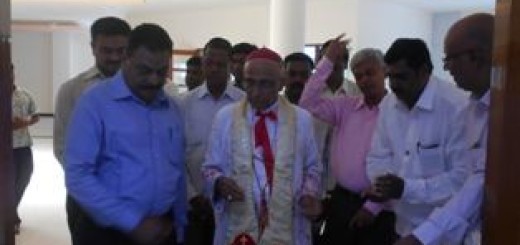Mamata and Demonetisation – Oppose, expose, depose

Gyan Ranjan Saha, in The Statesman, Kolkatta, December 1, 2016
(Note: Parliament is the heart of democracy. As long as it is not allowed to function, cardiac arrest would be the end result. We have a federal system of government and without the willing cooperation of state governments according to constitutional rules, no achievable goals can be reached.
Now what is happening is not reasoned debate and discussion in the proper forum but a shouting match between the ruling party and the opposition, mostly outside the parliament, led by Modi who is the worst offender in not opening his mouth in parliament. This needs must change.
A legally elected government, Modi government is just that, can’t be deposed, it can be opposed and exposed. The opposition does the two jobs rather commentably, but Modi so far has failed miserably in answering their legitimate questions thus proving himself to be either ignorant, incompetent or dictatorial. Any of these does not augur well for Indian democracy.
West Bengal’s Mamata may be termed as the best among the worst CMs the country has. That is no reason to assume herself to be more than what she is. In so doing  she is biting of more than what she can chew. Modi should remember, he is the PM for the whole country, for all states. The states in turn should act as parts to strengthen the whole. We can only hope that better sense will prevail with all. james kottoor, editor)
she is biting of more than what she can chew. Modi should remember, he is the PM for the whole country, for all states. The states in turn should act as parts to strengthen the whole. We can only hope that better sense will prevail with all. james kottoor, editor)
President Pranab Mukherjee, while speaking at the celebration to mark Indira Gandhi's centenary year, made two very important points. The first was, of course, an iteration of Mrs Gandhi’s words – “It is the Opposition’s duty to oppose, expose, and if possible, depose”. This was soon after she was deposed following the end of the Emergency. However, what the President did not say was that a lawfully elected government can be deposed only by constitutional methods. The second was her strong belief that in a parliamentary democracy as in India, the role of the Prime Minister vis-a-vis the President, should be pivotal. To quote this year’s Nobel laureate, Bob Dylan: “The times they are a-changing”.
While the Opposition has accepted its role to oppose and expose, it has been trying strenuously to depose a massively-elected Government, but with no success. And yet, efforts to depose an elected government have assumed ritualistic recurrence. The futility of the failed attempts over the past few months is obvious. If the country has adopted the Westminster form of democracy and government, such efforts are bound to be still-born. But what has instead emerged during the past two years is a very disconcerting image of the polity. People with strong faith in a democratic political set-up are dismayed.
Parliamentary proceedings are disgusting. The unruly and un-parliamentary conduct of almost the entire Opposition exposes a sorry spectacle, almost unimaginable in any civilised country. I was recently reading the famous speech of Edmund Burke in the Lords while the House was discussing the impeachment of Governor-General Warren Hastings. I reflected on the performance of our own parliamentarians and wondered if we had bargained for this experience while framing the Constitution. The members of the Congress party seem to have jettisoned the second belief of their own Prime Minister. She believed that the position of the Prime Minister is paramount so long as the incumbent has the majority in the House.
That being the case, how could the demand for Narendra Modi's resignation be raised in the aftermath of the demonetisation of the Rs 500 and Rs 1000 currency notes. It is also comforting to note that the parties agree that such a brave act is necessary to fight the menace of tax evasion and counterfeit money, but their opposition is to the method adopted. Thus the destination is acceptable, but the road chosen is not. One would understand the validity of their arguments if they had indicated an alternative plan or method. Not a single party has come forward with any such praxis except to articulate invectives and personal attacks against Prime Minister Modi. This points to the intellectual bankruptcy of the leaders.
Verbally, the most virulent opponent of demonetisation is the West Bengal Chief Minister, Mamata Banerjee. In her pre-election speeches, she had conjured up the bizarre possibliity of incarcerating the Prime Minister. She has now betrayed her belligerence by setting a 72-hour ultimatum. How would this ultimatum translate into action? No one has any inkling of her plan or objective. She marched to Rashtrapati Bhavan along with the maverick Delhi Chief Minister to register her displeasure. She urged the President to take steps, but against what and whom? Even a school student of the Constitution knows the powers of the President vis-a-vis the legally-constituted Government of the day. It shows her ignorance of the law of the land or worse, her defiance of the Constitutional provisions.
It is clear that her fulminations are obliquely directed elsewhere. She dreams of grabbing the seat of power in Delhi and fulfil her long-nursed desire to become the Prime Minister of India. Towards that end, she has been trying to form and lead the utopian concoction of a federal front. Additionally, there is a popular perception that the vehemence is less of an agenda than her efforts to find an escape route to enable her soldiers to get rid of their ill-gotten money.
This country bears witness to the political system of regional satraps ruling the states. In fact, over the years, we have learnt to live with the quasi-monarchical from of Government in the States. The leaders swear by their unflinching faith in the Westminster form of Government, and yet, the upshot of their shenanigans is that most of these leaders, as happened during the Mughal era, dream to ascend the high seat at Raisina Hill. Given this scenario, one is bemused to think as to how the current supreme leader of West Bengal still believes that she can lead a federal front of these ambitious state leaders. Her past efforts in this direction have failed miserably.
Opposition leaders routinely defy the Centre and a lawfully established Union Government at almost every turn. The Union Government adopted the Direct Benefit Transfer method for disbursing targeted benefits and entitlements to the recipients. The economic benefits of an entitlement-society may be a subject of political debate but so long as they exist, efforts must not be sabotaged or opposed. The West Bengal Chief Minister has opposed the Centre's decision to pay the entitlement in the MNREGA scheme through the bank accounts of the workers. Lack of bank accounts is no defence. It is not a problem to open a bank account, even in rural areas. In fact, the shoe is pinching elsewhere.
She had stridently opposed the Niti Aayog. Changes are inevitable and she was ploughing a lonely furrow when she opposed the disbanding of the Planning Commission. She felt that she must have the privilege of addressing the Aayog meeting early. The name of her state came in the way. So she got a resolution passed in the Assembly to change the name of the state. Consider the increase from 32 per cent to 42 per cent in the devolution of taxes to the states by the Finance Commission and the concomitant reduction in the Centre’s share in several Centrally-sponsored schemes. She changed the name of one of the schemes to make it appear a state-sponsored project. This cosmetic change may not mean anything, but it does reveal a mindset which is basically anti- Centre. She does not realise that the schemes are centrally-sponsored and the Union Government has the right to modify the terms of the same. She certainly has the right to opt out, but to the ultimate disadvantage of the state. Further, no government has a permanent tenure to rule, whether at the Centre or the state, and so, changes are inevitable and must be accepted rationally and not whimsically.
Defiance for the sake of defiance may be a policy strategy to score brownie points and to show one’s political savvy, but it is an exercise in futility without any commensurate benefit to the affected segment of society. It also demonstrates an anxiety of the practitioner to arrogate the self-created image of excellence and superiority. The intemperate use of English is, as George Orwell once wrote, a vehicle of oppressive ideology and at the end of the day, will destroy India's political culture. The Opposition and the regional parties should be more restrained and circumspect in the use of words. After all, as GB Shaw said, brevity is the soul of wit. (The writer is a former member of the Indian Revenue Service.)
















